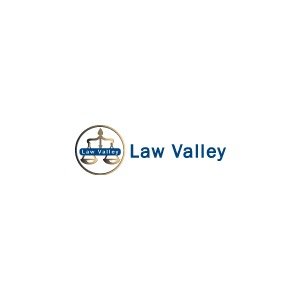Best Employer Lawyers in Bangladesh
Share your needs with us, get contacted by law firms.
Free. Takes 2 min.
Or refine your search by selecting a city:
List of the best lawyers in Bangladesh
About Employer Law in Bangladesh
Employer law in Bangladesh is primarily governed by the Bangladesh Labour Act, 2006, which provides comprehensive guidelines on the relationships between employers and employees. It covers various aspects such as employment conditions, dispute resolution, labor rights, and employer obligations. The aim is to establish a balanced work environment protecting rights of both employees and employers with regard to fair wages, working hours, and workplace safety.
Why You May Need a Lawyer
Many situations may arise where you might need legal assistance as an employer in Bangladesh:
- If you are facing claims related to unfair dismissal or disputes over employment contracts.
- In cases of non-compliance with safety standards leading to legal actions.
- To ensure adherence to the ever-changing labor laws and regulations.
- For creating or revising employment contracts to ensure they are legally sound and enforceable.
- If involved in collective bargaining or disputes with labor unions.
- Handling employee grievances, awards, and disciplinary actions to mitigate legal risks.
Local Laws Overview
The Bangladesh Labour Act, 2006, and subsequent amendments form the backbone of employment law in Bangladesh. Key aspects include:
- Employment Contracts: Contracts must be clear, detailing the terms of employment including job responsibilities, wages, duration, and conditions for termination.
- Working Hours and Overtime: Typically capped at 8 hours a day, with a maximum of 48 hours per week, with provisions for overtime compensation.
- Wages: Legal minimum wages vary by industry. Employers are required to comply with these to avoid legal repercussions.
- Health and Safety: Employers must ensure a safe working environment and adhere to safety standards stipulated in the law.
- Dispute Resolution: The law provides mechanisms for resolving disputes through labor tribunals and courts.
Frequently Asked Questions
What is the maximum probation period for employees under Bangladeshi law?
The maximum probation period is six months for regular employees and three months for casual or temporary employees.
Are employers required to provide severance pay upon termination?
Yes, employees who have worked for a minimum of six months are entitled to severance pay based on the nature of termination and duration of employment.
What are the rules concerning maternity leave for employees?
Female employees are entitled to eight weeks of maternity leave before and eight weeks after childbirth, with full pay provided they're employed for a minimum of six months.
Can an employer dismiss a worker without notice?
No, a notice or payment in lieu of notice is required unless dismissed for grave misconduct under specific conditions outlined by law.
How are disputes between employees and employers resolved?
Disputes can be resolved through negotiation, conciliation, or by approaching labor courts and tribunals.
What are the legal obligations related to workplace safety?
Employers must follow regulations related to safe working conditions, including the provision of necessary equipment and training.
How is overtime work regulated?
Overtime work is compensated at twice the normal rate of wages and may not exceed 12 hours in total work time per day.
Can employees form unions under Bangladeshi law?
Yes, employees have the right to form unions and engage in collective bargaining, legally backed by the Labour Act.
What documentation is needed for employment contracts?
Employment contracts should include job specs, salary details, benefits, hours of work, and termination conditions, preferably in writing to avoid disputes.
Is there a requirement for employer contributions to employee welfare?
Yes, employers are required to contribute to various funds, such as provident funds, gratuity, and workers' profit participation funds for welfare.
Additional Resources
Here are some resources and organizations that can assist with employer-related legal matters in Bangladesh:
- Ministry of Labour and Employment: Offers oversight and policy guidance on labor laws.
- Bangladesh Employers' Federation: Provides support and advocacy for employers across industries.
- Bangladesh Labour Tribunal: Handles employment and labor disputes baed on the Labour Act.
Next Steps
If you are an employer seeking legal assistance, consider doing the following:
- Conduct a preliminary consultation with a labor lawyer to discuss your specific needs and challenges.
- Review your current employment contracts and workplace policies to ensure compliance with the law.
- Engage an experienced attorney to help you draft new contracts, handle employment disputes, or navigate legal compliance issues.
- Stay informed about changes in employer laws by participating in workshops or seminars conducted by labor organizations.
Lawzana helps you find the best lawyers and law firms in Bangladesh through a curated and pre-screened list of qualified legal professionals. Our platform offers rankings and detailed profiles of attorneys and law firms, allowing you to compare based on practice areas, including Employer, experience, and client feedback.
Each profile includes a description of the firm's areas of practice, client reviews, team members and partners, year of establishment, spoken languages, office locations, contact information, social media presence, and any published articles or resources. Most firms on our platform speak English and are experienced in both local and international legal matters.
Get a quote from top-rated law firms in Bangladesh — quickly, securely, and without unnecessary hassle.
Disclaimer:
The information provided on this page is for general informational purposes only and does not constitute legal advice. While we strive to ensure the accuracy and relevance of the content, legal information may change over time, and interpretations of the law can vary. You should always consult with a qualified legal professional for advice specific to your situation.
We disclaim all liability for actions taken or not taken based on the content of this page. If you believe any information is incorrect or outdated, please contact us, and we will review and update it where appropriate.
Browse employer law firms by city in Bangladesh
Refine your search by selecting a city.

















